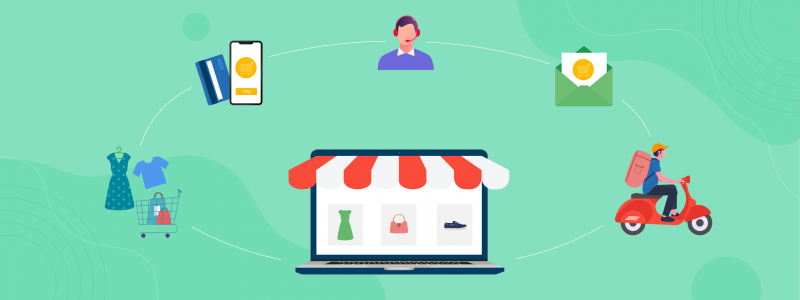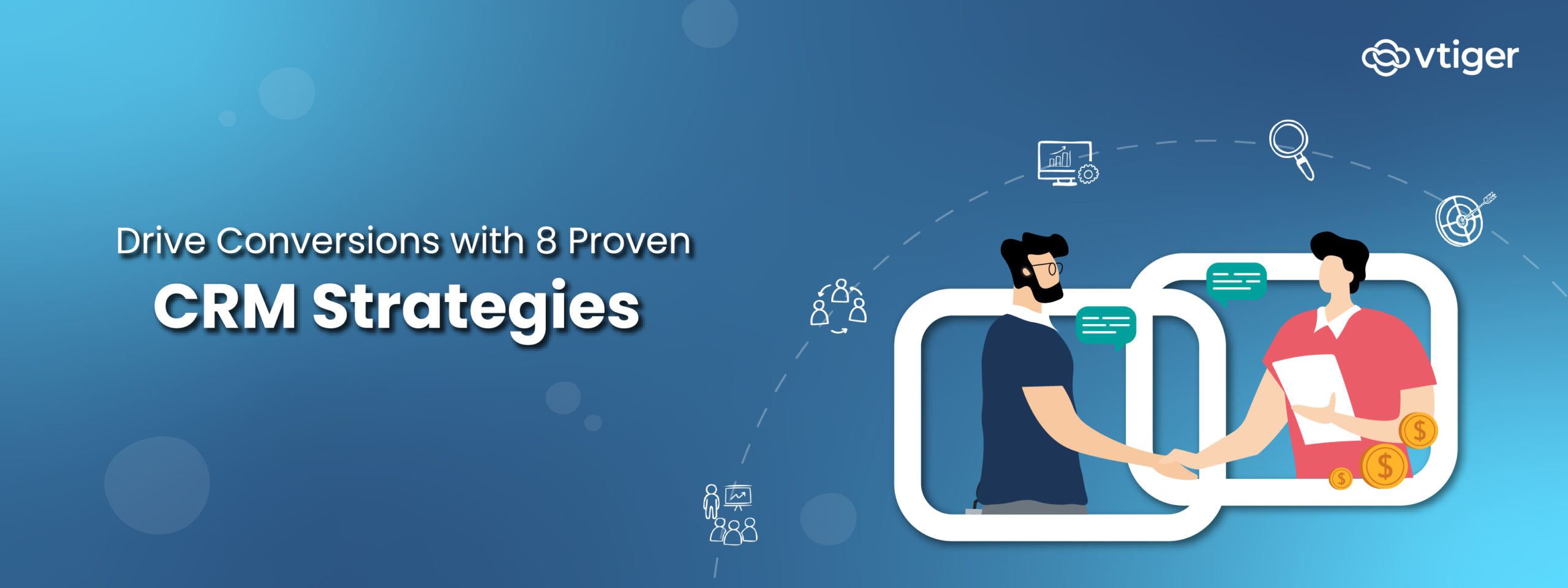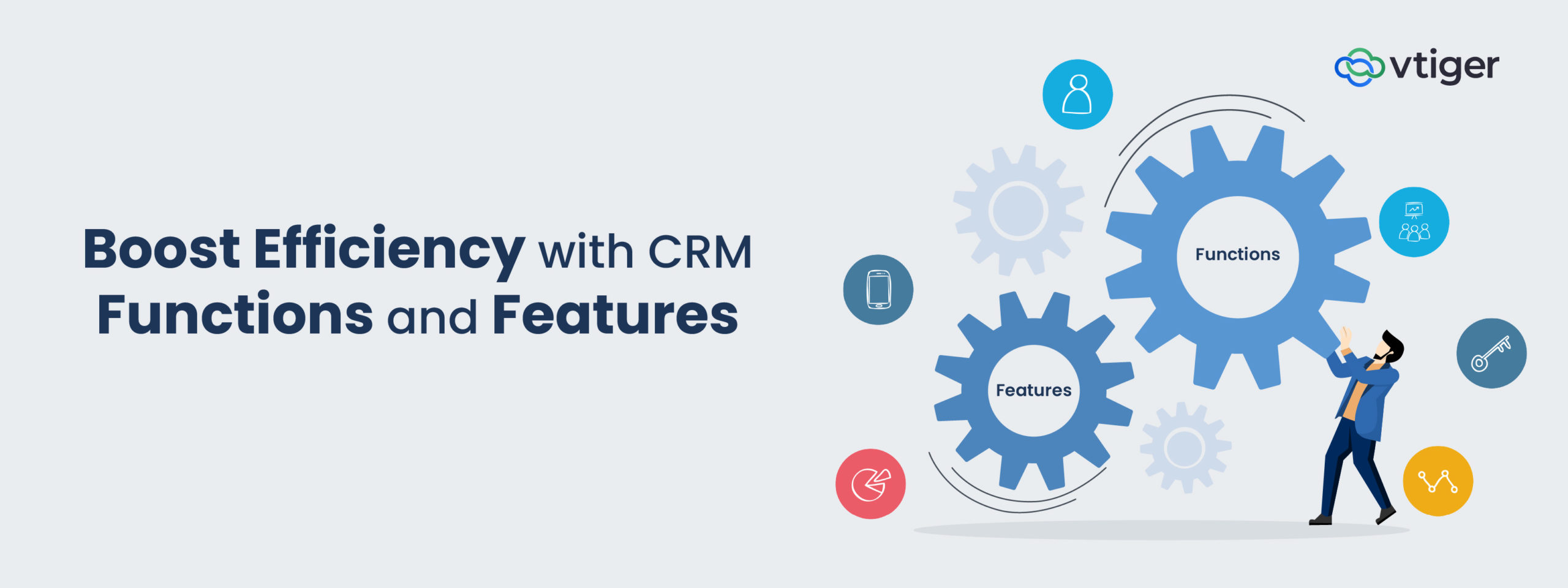Retailers must repeat store visits and build brand loyalty to increase sales eventually. And the key to achieving this goal is to improve customer relationships. But how do you capture a customer’s attention when challenges in the retail industry are numerous?
- Competition in the retail industry is expanding as customer demands are multiplying. So, businesses are exploring omnichannel strategies to provide relevant and customer-centered experiences to retain customers.
- Not using technology to manage a business is another problem. Not having updated information, sending product offers after a customer has already purchased it, and other such minute errors can be risky.
- The COVID-19 pandemic at the current time has made consumers adopt online shopping more than ever. Retail companies are hurrying to improve online shopping experiences and up their game to stay in business.
What are some ways to engage customers with your business?
Try doing this:
- Keep studying market trends and make changes to the way you run your business.
- Collect regular feedback and improve customer experiences.
- Add new products and services to your business.
- Use technology. Install a Customer Relationship Management (CRM) software and see your business transform. A good CRM can,
- Break the silos to integrate customer data and get a unified view.
- Help you analyze the customer experiences right from the lead stage.
- Create personalized solutions based on the above.
This blog talks about the importance of a CRM in retail businesses. So, if you own a retail business or planning to start one, read on!

Having a CRM system in retailing is a great benefit in itself, and integrating it with third-party applications is an added advantage. Many companies use multiple software systems and apps to manage their business.
Let’s suppose your business uses a CRM system, an accounting software, and an email client. Don’t you think integrating and analyzing data across platforms gets a little too difficult?
If you integrate your CRM with third-party applications, you will have consolidated information and that just eases your job!

One of the most significant benefits of CRM software is automation. No matter what kind of business you own, the last thing you want to do is manually enter and manage customer data – manually scheduling appointments, manually creating sales deals, and manually reporting customer issues. Doesn’t that get hectic especially if you own a retail store? Collecting and entering customer information manually into a computer can become tedious.
In such a situation, CRM can be a time-saver! By integrating your website with a CRM in your online retail business, and using CRM-enabled PoS systems at retail stores, you can store and manage data automatically. This saves you some time to focus on other important tasks in your business.

Sending promotional offers to prospects and customers is fine, but is it okay to send them offers aimlessly? Will they even open your messages? What if their mailbox thinks your promotional emails are spam?
Whether you have an online or offline retail store, you must know about customers’ interests and shopping habits to send them relevant promotions. The information that a CRM stores can give you insights into your prospects’ and customers’ interests, which will help you churn out personalized offers.
Let us look at this example – As a bookstore owner, you want to introduce children’s books by a new author and have a reading session at your store. You can use data from past purchases to invite customers with children for your session. Imagine the interest your invites will generate!

Retargeting is the strategy of getting store or website visitors back after they have left without purchasing. It works by keeping track of all the visitors.
Here is a scenario – You finally go to a store and buy that bag you have been eyeing online all month. Imagine seeing an ad for the same bag even after purchasing it. Annoying? Instead, the store could have utilized the cross-selling opportunity and showed you a belt or shoes to go with the bag.
Similarly, to keep the visitors from abandoning your website, you can show them personalized pop-up messages and offers that will make them buy. For instance, research says that 92% of first-time visitors do not buy. To gain their interest and make them buy, you can give them a special first-time discount.
With a CRM, you can save relevant purchase information about your visitors and buyers and make retargeting effective like never!

Customer feedback is vital for improving your business and thereby improving customer experiences. Online or offline, if your customers are happy, is there anything that can stop your business from growing? And what better than a CRM system to collect and act on the feedback?
If you have an online store, you can send feedback forms or surveys and collect customer reviews. Also for instance, in Vtiger CRM, you can integrate with social channels such as Facebook and allow customers to express their issues, which land in the CRM directly.
On the other hand, in a brick-and-mortar store, you can provide feedback forms at the billing counter and get your customers’ reviews.

A CRM system can pave the way for enhanced customer experiences. If you’re wondering how, we’ve painted you a little picture here.
A customer buys from your website and receives a damaged product. They decide to contact you to exchange it. You have provided them with multiple ways of contacting you, such as call, chat, email, and social media. Don’t you think your customer support team might sometimes find it tricky to handle multiple channels? And if the customer reports the same issue from all the channels, it results in duplication. Ughh! That just doubles your work.
A good CRM will allow you to handle multiple support channels and give you a single view of customer data. Your customer support team will have details like purchase history, issues related to past purchases, etc., available on one screen, helping you serve your customers better. For instance, with Vtiger CRM, you can speak to a customer on call or over chat and instantly record their issues from the same screen. Doesn’t that sound easy?

Imagine that you have a leaky bucket and water is flowing out of it. Would you pour more water to refill the bucket? Or patch the holes to stop the water from overflowing?
You would likely fix the bucket first. Why? Because refilling would be a futile effort while fixing and retaining the water would be much easier and fruitful.
Now, imagine the water as your customer base and the leaky bucket as your company. Obtaining new customers is a tiresome effort and 5 to 25 times more expensive than gaining new ones, whereas retaining existing customers is facile.
So, how do you make your customers choose you over your competitors? There are many ways. For instance, let’s suppose you use loyalty programs.
To build a loyalty program, you must have customer-related information such as:
- Where they browse and shop the most
- What kind of offers appeal to them
- What interests them the most
And how do you detect this pattern? How do you gather data that is spread across your product range and over a large time frame? A CRM system – All this information can be stored and made available through a reliable CRM. And if your CRM offers a unified view of customer information, curating the best loyalty program or other retention strategies becomes effortless.
By now, we hope you’re convinced about the significance of a CRM in retail businesses. If you are a retailer, it’s time you adopt a CRM and see your business move forward!



